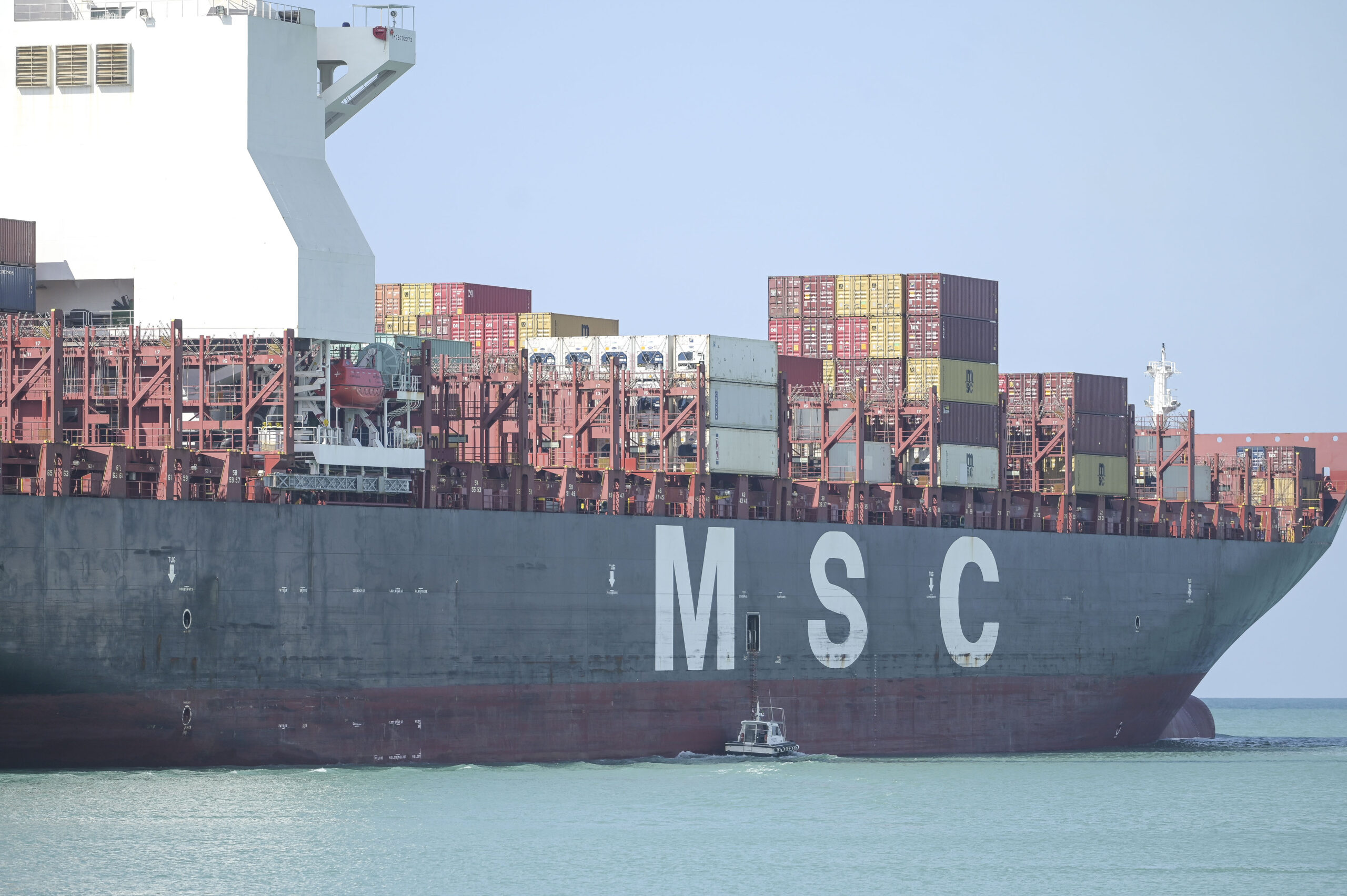Maritime transport, all the causes of the break between Maersk and Msc

Maersk and MSC, the two largest shipping companies in the world, announce the dissolution of the 2M alliance. They have different – and incompatible – plans for the future. Here are which ones
The world's two largest shipping companies, Denmark's Maersk and Swiss-Italian Mediterranean Shipping Company (MSC), announced last month that their alliance will end in 2025.
The partnership, known as “2M,” allowed the two companies to share their ships, similar to what happens between airlines under codeshare agreements.
Taken together, Maersk and MSC control about a third of the world's shipping capacity, even though the vessels involved in the alliance were only worth a tenth of it.
ALL THE EFFECTS OF BREAKING 2M
As Quartz explains, the split between the companies is very significant news, because it stems from two different bets on the future structure of world trade. An arrangement influenced by political discourses on the economic-logistic detachment from some countries considered unreliable and on the consequent reorganization of the international supply chains (we speak of reshoring and friend-shoring ).
The breakup of 2M could also cause a domino effect, influencing the dissolution of the other two major alliances in global maritime trade, the Ocean Alliance (between COSCO, OOCL, CMA CGM and Evergreen) and THE Alliance (between Hapag-Lloyd, ONE and Yang Ming ). Industry restructuring could also prompt container shipping companies to rethink their investments in fleet capacity and logistics infrastructure.
WHAT MAERSK AND MSC SAID
In announcing the end of 2M, Maersk and MSC spoke of the need for both companies to "pursue their individual strategies": it means – points out Quartz – that they have opposite and irreconcilable priorities, at least for the moment.
Maersk, in fact, does not want to be just a shipping company but a broader and more integrated logistics group, which also includes air transport, truck transport and last mile deliveries. MSC, on the other hand, is focusing heavily on expanding its fleet. In essence, while Maersk does not seem concerned by the possibility of losing market share in maritime transport, maintaining – and indeed increasing – its position in the sector is instead fundamental for MSC.
Maersk CEO Søren Skou put it clearly: “Our strategy is not about gaining market share in the ocean. It's about gaining share in our customers' wallets when it comes to logistics spending."
OPINIONS ON RESHORING
The strategies of the two companies are based on different interpretations of the impact of reshoring and friend-shoring on trade flows, maritime and beyond. The two terms indicate the manufacturing detachment plans from China, to bring production back home ( reshoring ) or to install it in allied nations ( friend-shoring ).
Maersk seems to think that, if reshoring is successful, there will be less need for ships because the factories will already be located within the main destination markets of the products: the most used means of transport then will not be container ships, but trains and planes.
If instead friendshoring prevails, and therefore some manufacturing phases move from China to Vietnam or South Korea, there will probably be an increase in the demand for maritime transport of intermediate products (those that need to be further processed) from a country to another.
Or, again, reshoring and friend-shoring could both fail, and global supply chains will continue to depend on China. In the latter case, shipping companies with large fleets – is MSC's plan – would find themselves well positioned to seize the opportunity.
WHAT WILL CHINA DO WITH COSCO?
COSCO, China's state-owned shipping company and fourth in the industry by capacity, is likely watching the 2M disbandment closely.
China, writes Quartz , aims to maximize its influence on global trade. And the plans of Maersk and MSC allow the state giant to think "about what it wants to be in the future," said Cichen Shen, an analyst at the specialized portal Lloyd's List .
It is possible that COSCO will decide to take both the Maersk and MSC routes: on the one hand it will pursue western integration, acquiring more shipping lines; on the other hand it will seek vertical integration, acquiring ports ( the most recent case is that of Hamburg, in Germany ) and collaborating with vehicle manufacturers.
This is a machine translation from Italian language of a post published on Start Magazine at the URL https://www.startmag.it/economia/maersk-msc-scioglimento-alleanza-2m/ on Thu, 09 Feb 2023 11:43:06 +0000.
